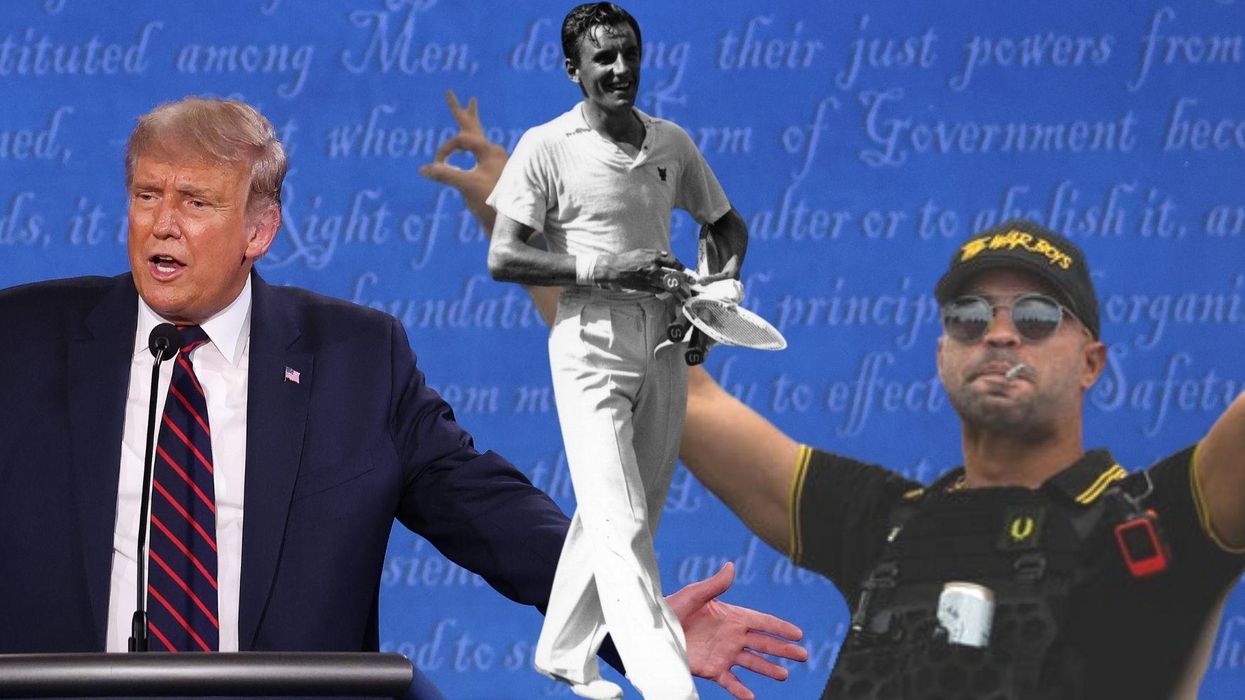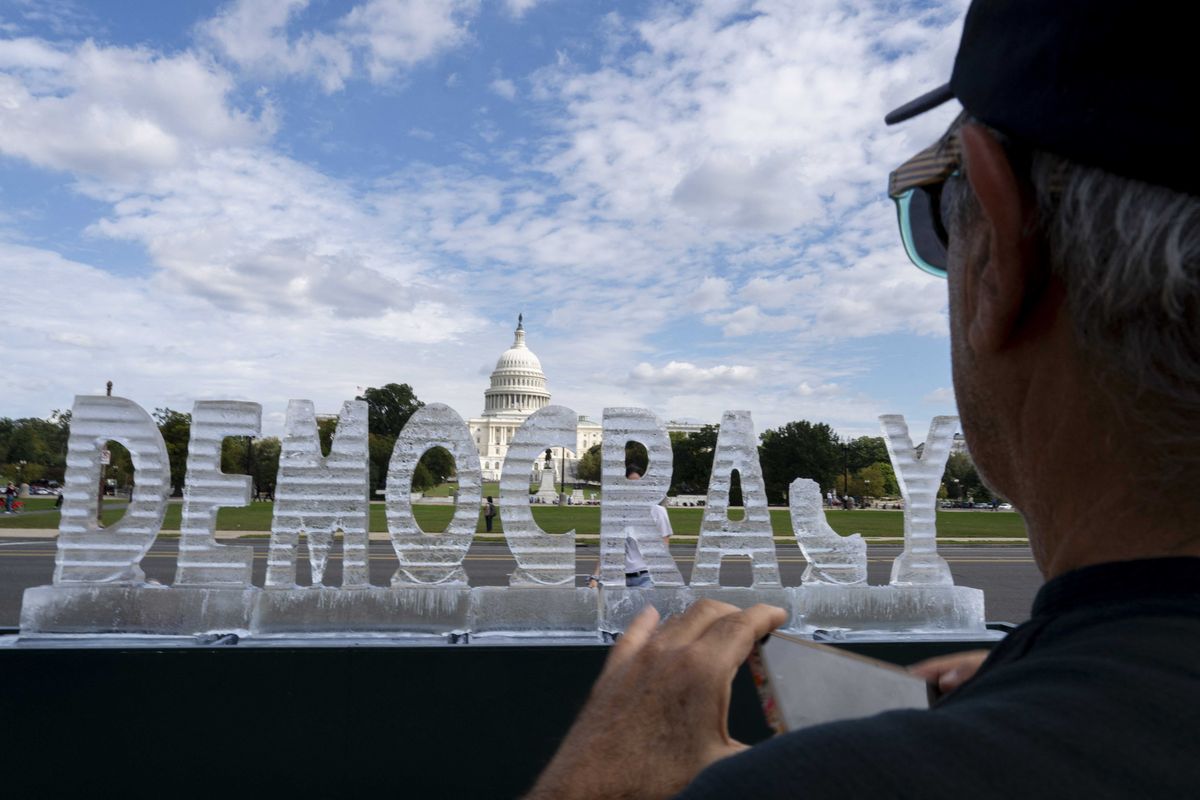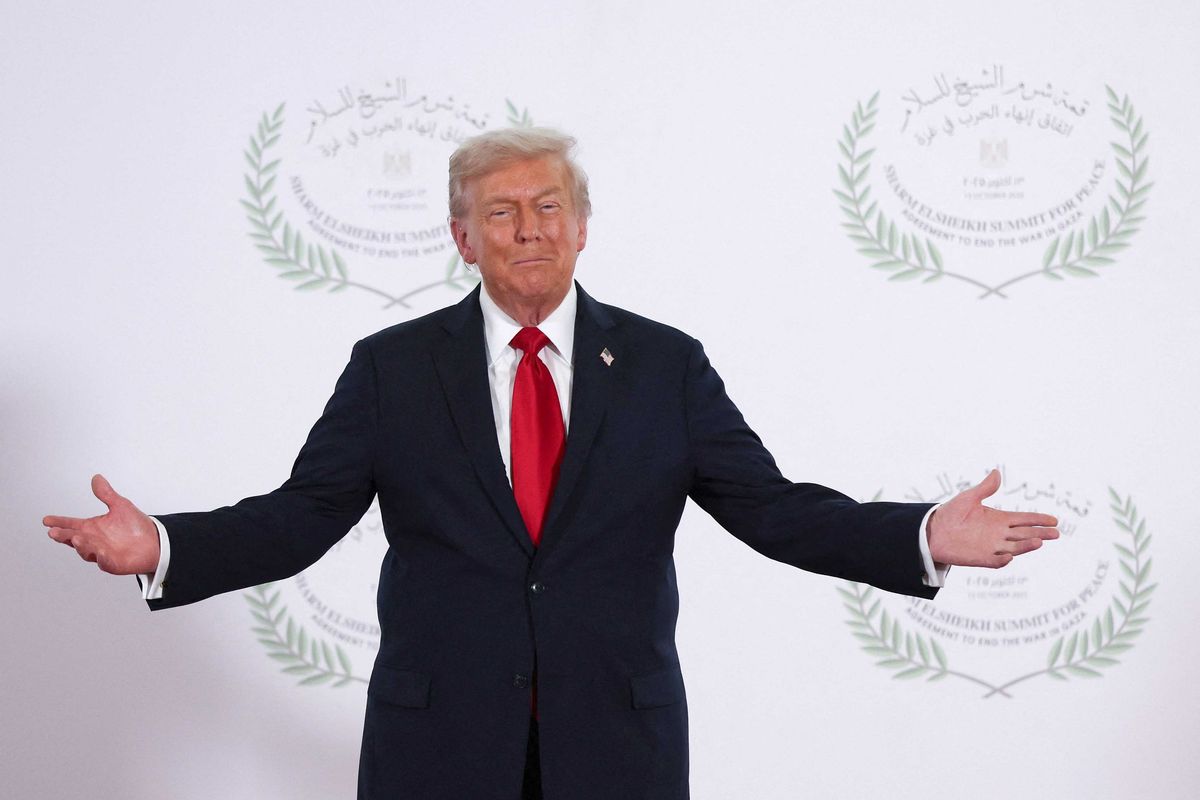
So much has happened in the past few days alone that it seems like the events of early last week were a lifetime ago.
But just because the social media agenda has moved on to Trump's coronavirus diagnosis does not mean we should forget the crucial events of the first presidential debate, which took place just last Tuesday.
One moment in particular stood out as a worrying dogwhistle from the president: his refusal to condemn white supremacists, and name-checking white supremacy group The Proud Boys.
But it's not the only time this week that they have been in the news.
Clothing brand Fred Perry also announced that it has stopped selling its black and yellow polo shirts in the United States because of their association with the far-right group.
The Proud Boys, an all-male, alt-right organisation founded in 2016 adopted the shirts as their unofficial uniform – much to the brand's frustration.
In a statement, a Fred Perry spokesperson said:
Fred Perry does not support and is in no way affiliated with the Proud Boys. It is incredibly frustrating that this group has appropriated our Black/Yellow/Yellow twin tipped shirt and subverted our Laurel Wreath to their own ends.
We ... made the decision to stop selling the Black/Yellow/Yellow twin tipped shirt in the US from September 2019, and we will not sell it there or in Canada again until we’re satisfied that its association with the Proud Boys has ended.
They added that the shirt is a piece of the "British subcultural uniform" which has been adopted by various groups over the years "without prejudice".
But, like their clothing, Fred Perry's history is slightly more chequered than that...
Contrary to their name, polo shirts were originally designed to be worn while playing tennis, a sport with a lingering white, middle-class image despite concerted efforts to shed it.
And when they migrated first to other sports – including golf and polo – and then to the high street, it was their WASPishness that was initially sought after.
Although Fred Perry, the son of a "working class socialist MP" who was once turned away from a tennis tournament because he didn't attend public school, didn't exactly conform to this image, the sport at which he excelled and the shirts he debuted at Wimbledon in the 1950s certainly did.
This was in part due to the work of René Lacoste before him and Ralph Lauren later, who reportedly had WASPishness firmly in mind when he released the clothing line 'Polo'.
The first working class people to really co-opt polo shirts as a fashion statement were the mods in the late 1950s and early 1960s.
They were particularly attracted to the multi-coloured Fred Perry polo shirts that were initially designed to be worn at table tennis tournaments where traditional tennis whites were forbidden.
The most straightforward reason why mods began buying Fred Perry was to "take pride in looking nice as a working class person". The brand's shirts were "clean and sharp" and, crucially, affordable. There were other benefits, too: for instance, they were casual enough to be worn by day and smart enough to be worn when socialising at night.
By the 1970s, when Fred Perry's popularity truly peaked, mod culture had partly spawned, partly been subsumed by punk.
Some sections of this sprawling but short-lived cultural movement were subversive and anti-establishment. Others were deliberately provocative and anti-political. Lots were caught up somewhere in the middle: the Sex Pistols, for instance, railed against the monarchy and called for anarchy but dressed up in swastikas.
At the same time, skinheads emerged, a group who were heavily influenced by punk. And, like punks, they split off into far-left and far-right groups (although many identified as apolitical). Some were wooed by the National Front, a far-right, fascist party who heavily opposed immigration.
Wherever punks and skinheads went, Fred Perry polos went. These cultures, and their various offshoots, have subsided and re-merged continually since the 1970s, notably in the 1990s.
The last decade has seen a well-documented surge in the far-right, not just in in the UK but around the world. It is little wonder, then, that Fred Perry polos have taken on this association once again. But this is not just because the brand has been worn by racists before.
The Proud Boys believe that "Western culture", and particularly white male culture, is under threat. What better to wear while violently asserting their right to preserve it than something with an existent history rooted in white middle-class society and later co-opted by predominantly white working class people?
Then there's also, of course, the fact that fascists love uniforms. They offer not only a sense of belonging, but also of organisation against the liberal forces they perceive as eroding their identity.
Fred Perry say they are working with their lawyers to try to end their association with the Proud Boys. But given their history in the UK as well as in the US, they may find themselves seeking to squash something that was cemented a long time ago.
Fred Perry have been contacted for further comment.













